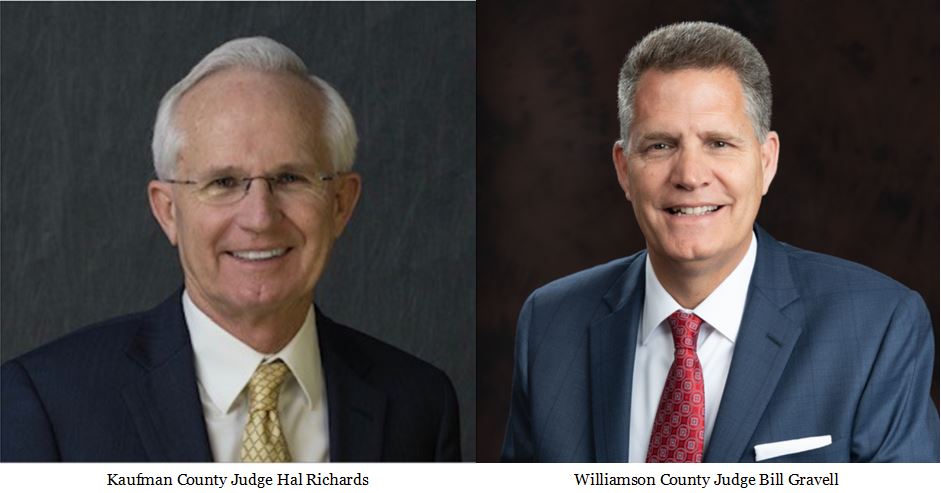When it comes to financing, public education can be an arduous task. In some cases, the initial step is to set aside some stifling assumptions:
- If we can’t pay cash, it’s not worth doing.
- The voters will never go for it.
- If I obligate the county to this debt, some of the constituents will not see fit to re-elect me.
Perhaps voters deserve more credit. It’s safe to say most constituents believe their own home is worth having, even if they had to finance. No doubt many of these same taxpayers are currently financing one, or possibly two, vehicles. Some financed their own education, or that of their children. While paying cash for major purchases, such as a home, is certainly an ideal method, the majority of people simply do not have that option.
Likewise, these same constituents, if asked, may agree that projects designed to better the community are worth consideration. Once armed with accurate facts and figures, voters can make an informed decision.
On Nov. 5, 2019, Kaufman County residents voted to support Proposition A, a $104.1 million transportation bond, and Proposition B, a $50 million facilities improvement bond. On this same date, Williamson County voters approved two bond packages: Proposition A to authorize the county to issue and sell bonds not to exceed $412 million for road construction and safety improvements, and Proposition B to authorize the county to issue and sell bonds not to exceed $35 million for parks, trails, and recreation.
County Progress asked Kaufman County Judge Hal Richards and Williamson County Judge Bill Gravell to share words of wisdom about the bond election process.

CP: What led the county to consider bonds as the method of finance for your proposed projects?
Kaufman County Judge Hal Richards: When I took office, one of my highest priorities was to build a new building to house our courts, district attorney, and related departments. All of these departments are jammed into a courthouse built in the mid-1950s when the county population was about one-fourth of our current population. The efficiency and safety of our operations are clearly insufficient. We felt the need was clear but believed the voters should be informed about the conditions and allowed to make the decision. Roads have and will always be important to the residents of our county as many commute daily to the Dallas/Ft. Worth area for work. In addition to commuters, there is still a large percentage of rural residents dependent on county roads for access. Our annual budget simply does not supply enough revenue to make a substantial impact on either, and a bond was the best solution.
Williamson County Judge Bill Gravell: Williamson County has had several successful bond elections for roads and parks in the past. Voter-approved bonds are selected to finance significant infrastructure and capital projects because the county feels that it is the voters who should decide about taking on debt to fund projects outside of regular county maintenance and operations.
CP: What methods did you use to communicate with/educate the public?
Judge Richards: Kaufman County used every available means including in-person meetings, Facebook, and a website to provide factual information about the needs and information about the plans for the facilities and transportation.
Judge Gravell: To begin, the Williamson County Commissioners Court formed a Citizens Bond Committee to determine if there was a need to sell bonds for parks and roads. If the committee decided the answer was yes, then the committee also was to recommend projects and dollar amounts to the Commissioners Court to consider. The meetings of the Citizens Bond Committee were public and held in different parts of the county. They also had a web page where information about the committee could be posted. Once the Commissioners Court called for the bond election, we created a page on our website for educational information. The County Judge and Commissioners accepted speaking engagements to educate voters about the bond election. We created brochures that could be distributed at these events. We created videos to post to social media. We place ads in our local newspapers and emailed media releases. The focus of our efforts was always on education about the election, as we cannot advocate on how to vote.
CP: How would you advise counties who are exploring a bond election but worried the public will be automatically disgruntled at the thought of debt?
Judge Richards: In our case, there was no other option beyond issuing bonds. The county would never have been able to cash flow such a substantial project. Kaufman County has been reported by the U.S. Census Bureau to be one of the top five fastest-growing counties in the United States. Debt is necessary when the demands of growth exceed growth in revenue. Just as a growing company has to use debt to stay ahead of demands on resources, so do counties, cities, and school districts.
Judge Gravell: Engage. Engage. Engage the public. Before you decide to hold a bond election, make sure to involve the public in the process so that they feel included in the decision. You can achieve this through a Citizens Committee or through public meetings. Include other governmental entities that would be stakeholders in the outcome. Be transparent in how the bond will impact the public, particularly on how it will impact their taxes. Also, hire experienced bond counsel early on as their advice is not only wise, but protective for elective officials.
For more information on the Kaufman and Williamson county bond elections, go to
- https://kaufmancountybond.com/
- https://www.kaufmancounty.net/county-government/2019-bond-updates/
- https://www.wilco.org/bondcommittee
- https://www.wilco.org/bondelection















